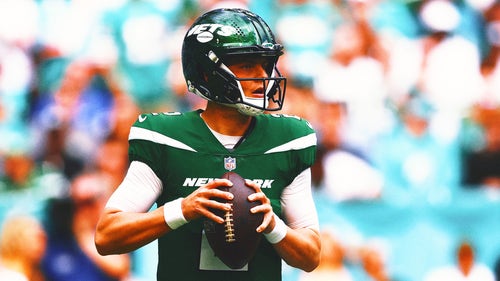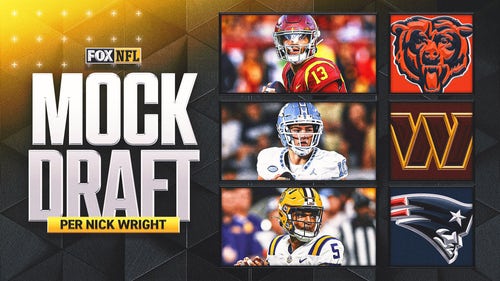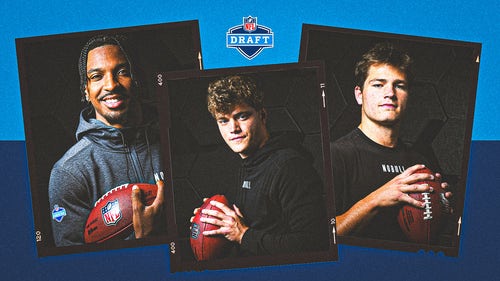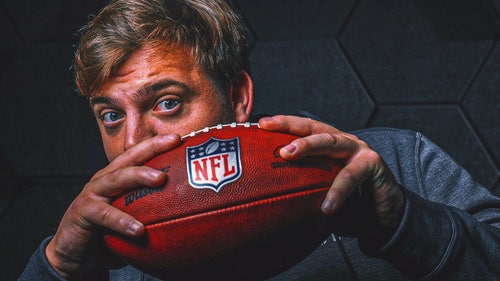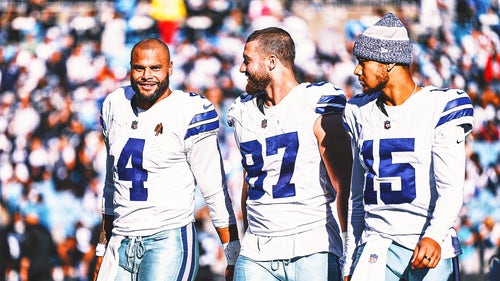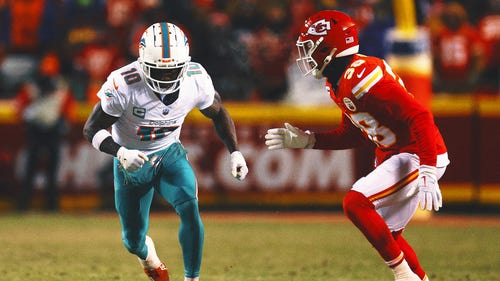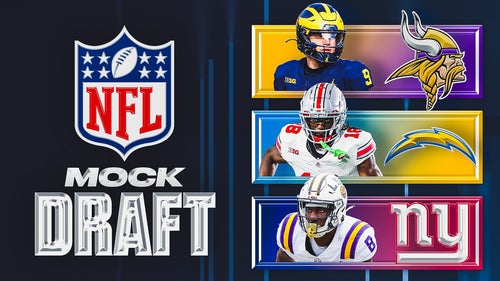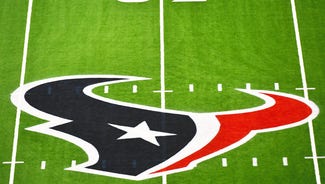
Following the trail that led police to Hernandez -- again

BOSTON – For 11 months, the burst of gunfire on a lonely street that left two men dead and another wounded stymied investigators -- they had no motive, no suspect and no clues regarding a silver sport-utility vehicle with Rhode Island plates seen speeding away.
They got no breaks when a man now believed to have been present at those killings was himself shot in the face in Florida and dumped along a deserted road -- he refused to cooperate with investigators, claiming he had no idea who had wounded him.
The investigation of the Boston murders was at a standstill. The Florida case was closed for one simple reason: lack of a cooperative victim.
Then came another murder, this one in a secluded field in North Attleboro, a town 40 miles southwest of Boston.
Today, Aaron Hernandez -- the now-former star tight end for the New England Patriots -- sits in a jail cell, accused of all three shootings:
-- The July 16, 2012, murders of Daniel de Abreu, 29, and Safiro Furtado, 28, and wounding of a third man in South Boston.
-- The Feb. 13, 2013, shooting of Alexander Bradley in Florida that cost the man an eye.
-- The June 17, 2013, murder of Odin Lloyd, 27, in a secluded field ringed by mounds of dirt and gravel and tall trees.
Hernandez has been indicted on murder and other charges by two separate grand juries in the Boston and North Attleboro killings and faces a federal civil lawsuit in the shooting that wounded Bradley.
Prosecutors have yet to detail their theories of the killings -- what, exactly, sparked them and how they were carried out. But the stunning indictment last week of Hernandez in what was described as an ambush murder of Abreu and Furtado and cryptic details in court documents that have been made public over the past 10 months suggest that the three shootings may be related, that Bradley and Lloyd may have been targeted because of what they knew about the inexplicable murders of Abreu and Furtado.
So far, the charges against Hernandez are merely allegations. Hernandez’s lawyers, in a brief statement, noted that it is one thing to accuse someone of a crime and another to obtain a conviction in a courtroom.
Even so, there is a chilling implication lurking in small details sprinkled through court documents -- that an effort to silence people who knew something about what happened on that nearly deserted Boston street in July 2012 led investigators to a suspect they had never considered: Aaron Hernandez.
Abreu and Furtado were immigrants from Cape Verde who were living with relatives and working for a housekeeping company. Abreu didn’t own a car, but late on a Sunday night he borrowed his sister’s BMW and drove himself and four friends to Boston’s theater district. They parked in a garage and walked down the street to a club known as Cure Lounge, entering just ahead of Hernandez, the muscled, tattooed tight end of the hometown Patriots.

Ernesto Abreu listened during a news conference at his attorney's office in Quincy, Mass., last week with photos of his son, Daniel de Abreu, and the gravesite of Daniel and Safiro Furtado. Daniel and Safiro were shot to death as they sat in a car in Boston's South End on July 16, 2012. Former New England Patriot Aaron Hernandez, who already faces a murder charge in a man's shooting death last year, has been indicted in this case.
It’s likely that even if they noticed Hernandez, Abreu and Furtado would not have recognized him as a football star for the local NFL team.
Bradley, described by one prosecutor as Hernandez’s “right-hand man,” was with the player, according to court documents.
Something happened in that club -- a chance encounter, according to Boston’s district attorney, Daniel Conley, that "triggered a series of events" that ended in murder.
Hernandez left the club, eventually driving away with Bradley in a silver Toyota 4Runner with Rhode Island plates, police investigators would later determine from surveillance films in a nearby parking garage. More than an hour after Hernandez walked out of Cure Lounge, Abreu, Furtado and their three friends left the club.
Minutes later, as they sat at a red light several blocks away, a silver SUV pulled up next to them, and someone opened fire with a .38-caliber revolver. Shots hit Abreu and Furtado, killing them almost instantly, and a friend sitting in the middle of the back seat suffered a gunshot wound to the arm. Two other friends in the car bailed out and ran, unharmed.
Boston police appealed to the public for help in finding the SUV. They spent time looking through vehicle registrations in Rhode Island, hoping to identify its owner. They dug into the backgrounds of the two dead men, finding no ties to gangs or other crimes that might have explained who might want to hurt them.
Weeks after the killing, Hernandez signed a contract extension with the Patriots worth as much as $40 million. That fall, he played through an injury-plagued season. The investigation ground to a virtual standstill.
In January 2013, more than six months after Abreu and Furtado died, Bradley was stopped on a highway outside Boston and charged with drunken driving. Hernandez, in the car with him, yelled out a window, “Trooper, I’m Aaron Hernandez, it’s OK,” according to a report of the incident.
Roughly two weeks later, Bradley was shot in the face and dumped along a quiet road in South Florida. Bradley refused to cooperate, and investigators with the Palm Beach County Sheriff’s Office ultimately closed the criminal case.
There was no mention of Aaron Hernandez.
Then Bradley filed his civil suit in Florida, alleging that he and Hernandez had been out at a strip club in Miami and “had an argument,” and that later, while driving, the player shot him in the face. Even that suit drew no notice -- though it included Hernandez’s name, it contained no reference to his occupation, no hint that it was a Pro Bowl NFL player accused of the shooting.
Then came Lloyd’s killing. It was almost exactly 11 months since Abreu and Furtado had been slain.
Investigators found keys to a Chevrolet owned by Enterprise Rent-A-Car in Lloyd’s pocket. When a detective called Enterprise, he was told that the vehicle had been rented to Hernandez.
Within days, their investigation led Boston detectives to Hernandez.
Five days after Lloyd’s body was found, a man called police and indicated that the person involved in that killing was also involved in the murders of Abreu and Furtado. The man also said he knew about the SUV with Rhode Island license plates. Asked by a police dispatcher how he knew, the man replied, “Someone accidentally spilled the beans in front of me.”
In a follow-up interview with investigators, the man said he’d heard the story from a customer at a Boston nightclub called Rumor. Detectives would learn that Hernandez and Lloyd had been at Rumor three days before Lloyd’s shooting and that Hernandez was allegedly upset about a conversation Lloyd had with someone at Rumor.
Detectives already knew that Hernandez had also been in Cure Lounge at the same time as Abreu and Furtado – they’d recognized him during their first look at surveillance videos shortly after the two men were killed. But they apparently never considered him a possible suspect.
Now, they went back to the videos.
The investigation led them back to the surveillance videos, which, in turn, led them to Bradley.
Nine days after the discovery of Lloyd’s body, police arrested Hernandez as a suspect in his killing and the Patriots cut him.
That same day, investigators searched a home in Bristol, Conn., owned by Hernandez’s uncle. In the garage, they found a silver Toyota 4Runner with Rhode Island license plates that was covered with dust and cobwebs. The SUV had been loaned to Hernandez in exchange for some promotional work he had done for a Providence auto dealer.
One of Hernandez’s cousins told detectives that Hernandez had left the SUV there about a year ago -- around the time Abreu and Furtado were gunned down.
In the meantime, investigators sought testimony from Bradley. He fought appearing before a grand jury, but prosecutors obtained a court order forcing him to testify about the murders of Abreu and Furtado. He went into hiding, eluding authorities for more than three weeks. Then, last Oct. 4, police and U.S. Marshals nabbed him at an apartment where he had been holed up in Hartford, Conn.
He was taken to Boston four days later and forced to appear before the grand jury.
It’s not known what questions Bradley was asked or how he answered them -- grand jury testimony is secret and often never becomes public. But it’s worth noting that when Hernandez was indicted last week in the murders of Abreu and Furtado, his cousin, Tanya Singleton, was also indicted on a contempt of court charge accusing her of refusing to testify before the grand jury.
To date, Bradley has not been charged with anything in the case, suggesting that he cooperated after he was placed under oath.
He could be a powerful witness against Hernandez, as could the man who called police after someone “spilled the beans” about Lloyd’s murder. The silver 4Runner could be powerful evidence, too, depending on what was discovered after investigators seized it to look for clues.
And without Bradley’s shooting and Lloyd’s killing, investigators might not know about those men or that car, which might still be parked in that garage in Bristol, Conn., covered in dust and cobwebs.
And they might not be any closer to solving the inexplicable murders of Abreu and Furtado that vexed them for 11 months.






































































































































